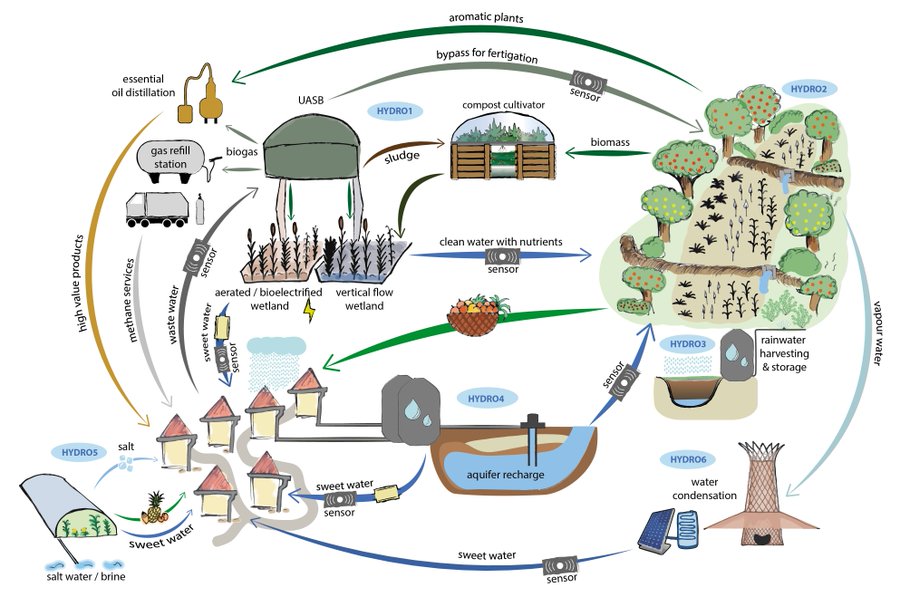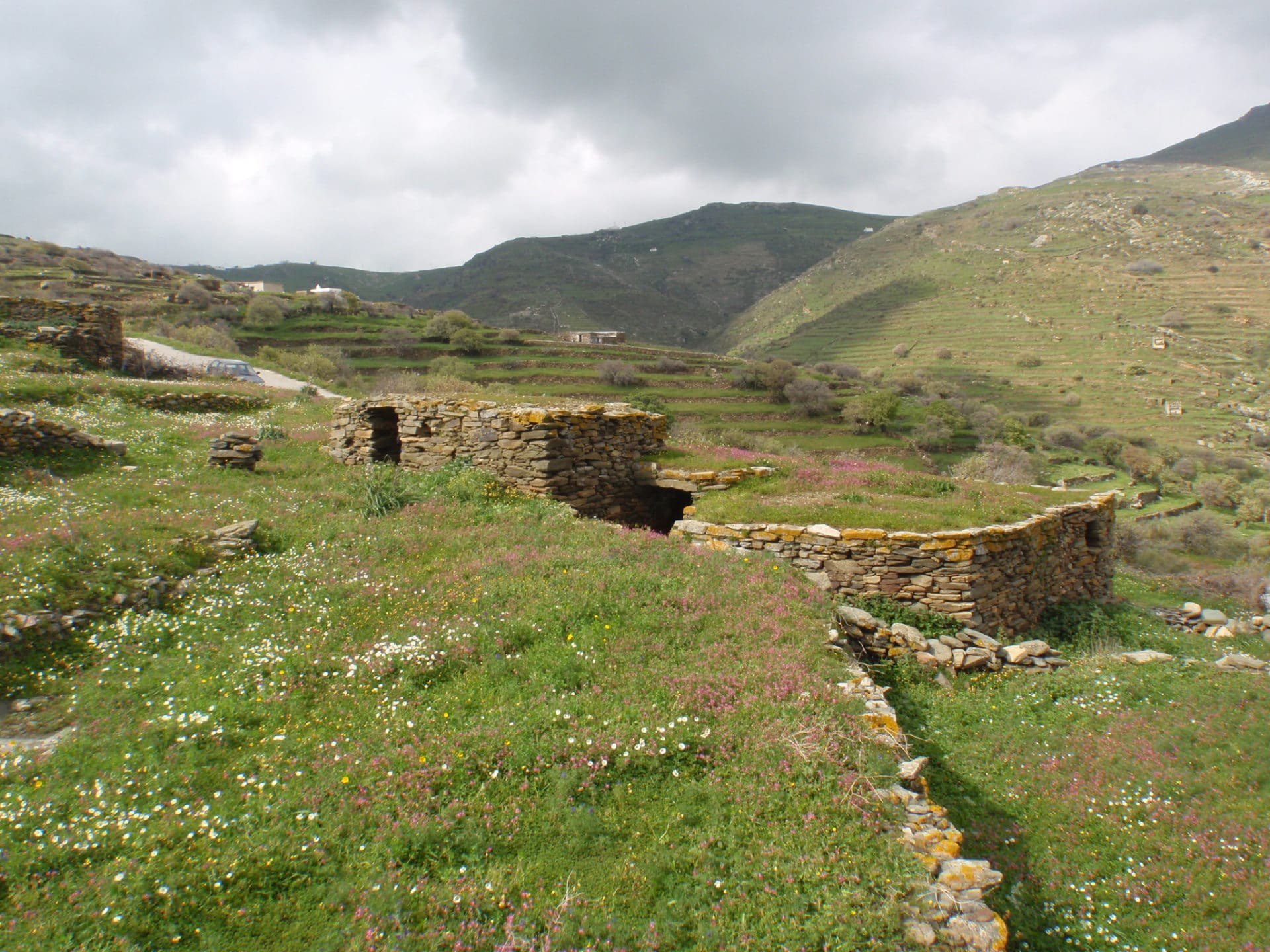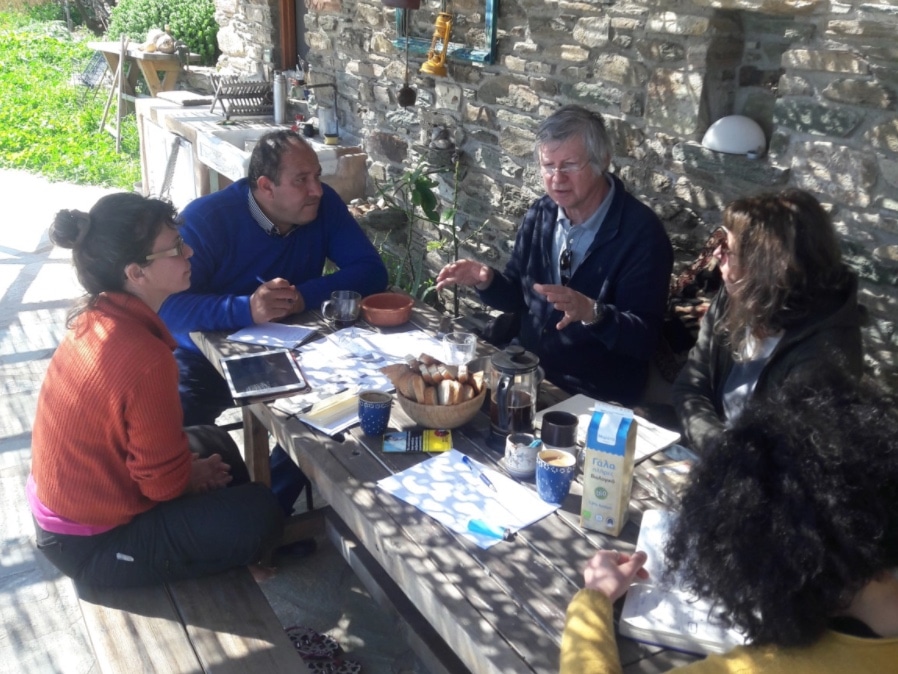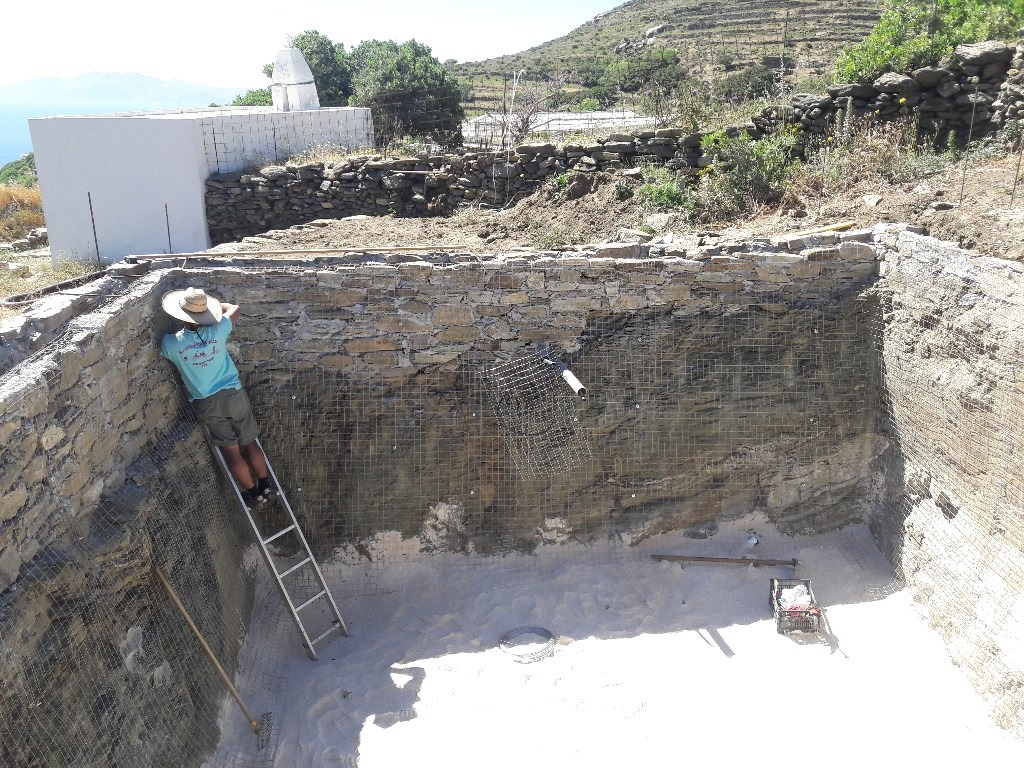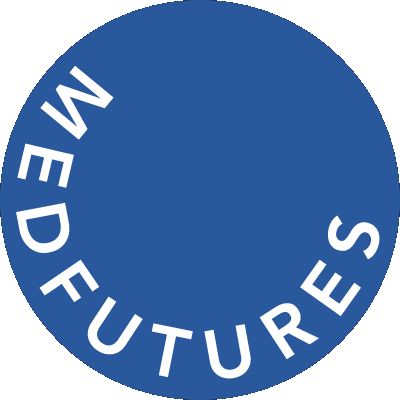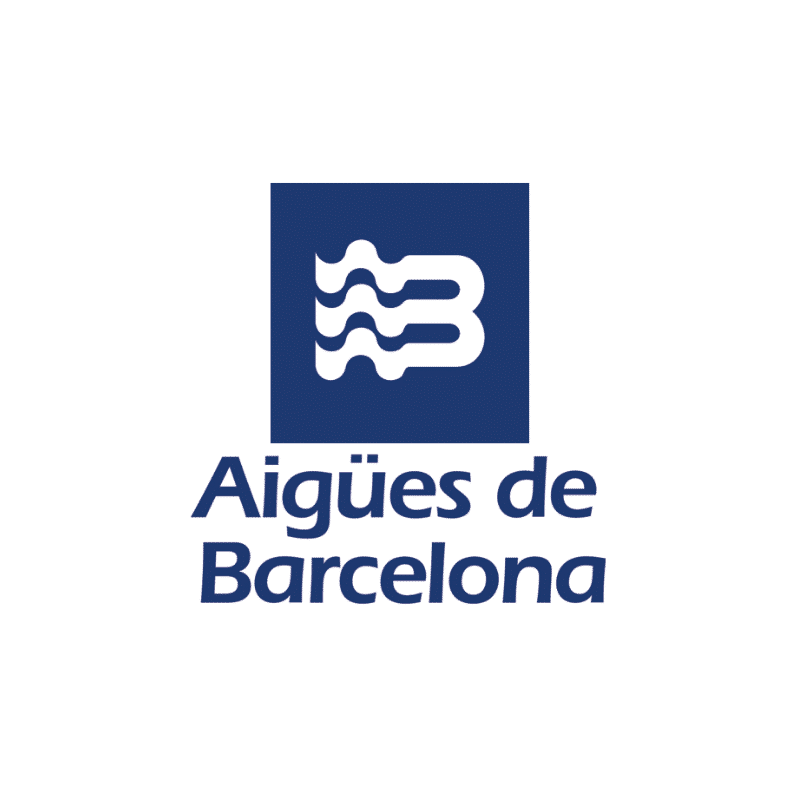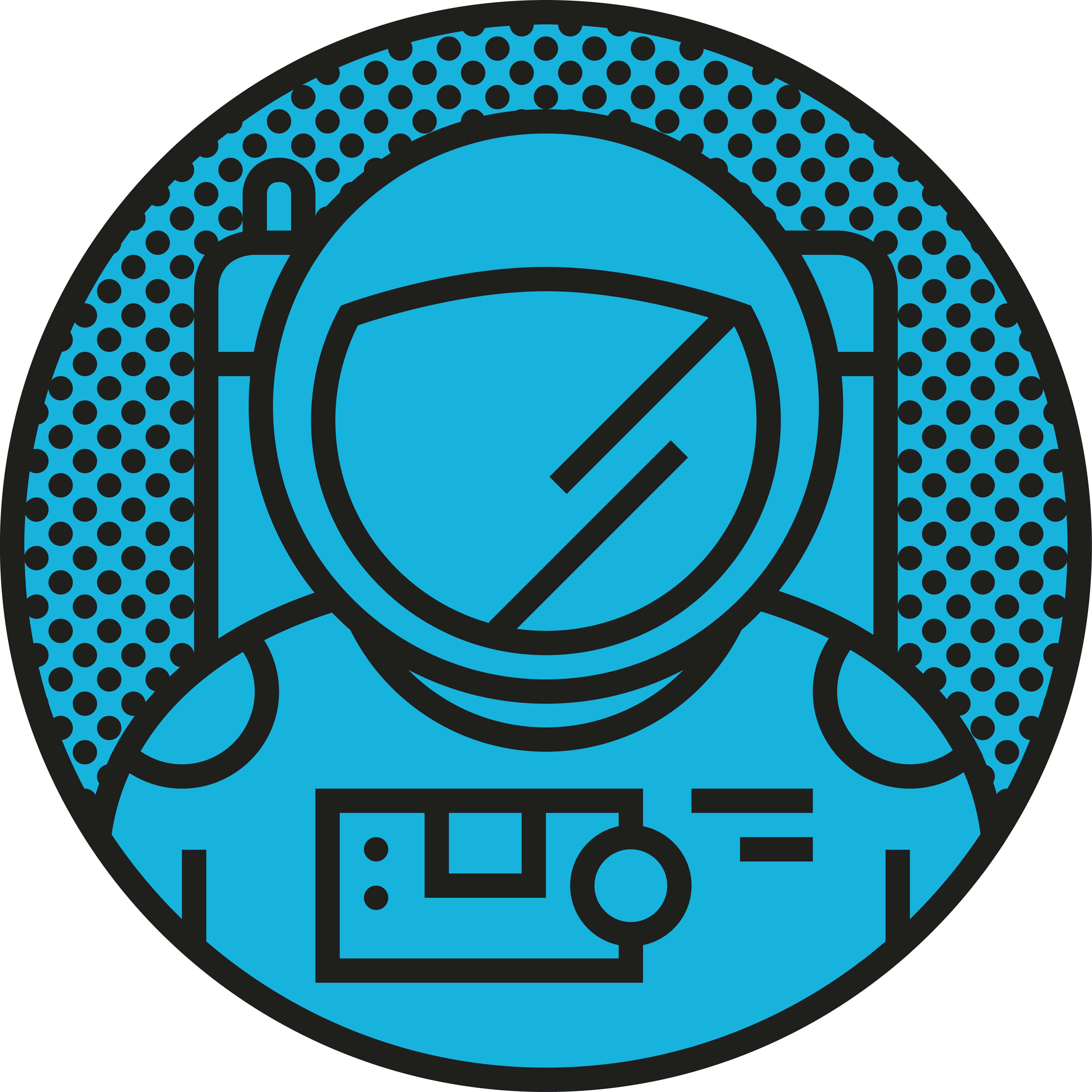Greece (Tinos)
In the Greek islands, a community of ‘water allies’ is working to solve the problems of water supply, wastewater and biodiversity loss – by extracting water from unconventional sources.
Even though they’re surrounded by water, the Mediterranean islands face significant challenges: with dry zones, low precipitation, high touristic activity and wasted water resources. On many, water reserves have to be supplemented by water brought in by tankers.
“Nothing should go to waste.”
Now, imagine an island that is completely water and energy sufficient. Hydrousa wants to shows that combating water scarcity on islands, and even closing the water loop, is possible and it’s starting with the trio of Tinos, Mykonos and Lesbos.
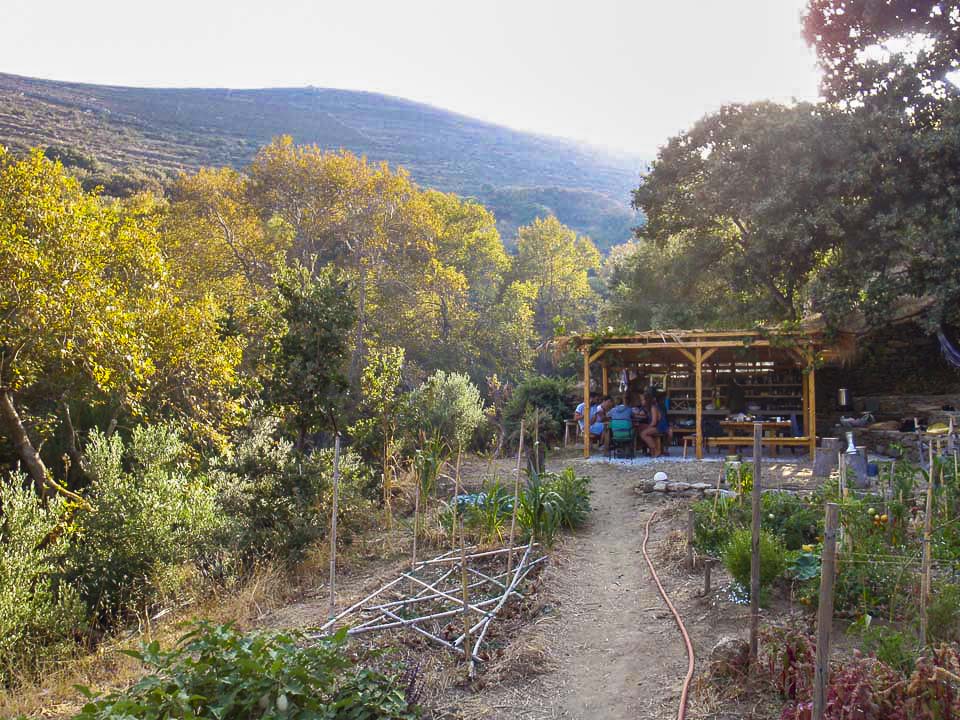
Climate change has an increasing direct impact on our daily lives and water is one of the most threatened resources. As a result of global warming, we live in a world of water tension and resource scarcity, especially in the Mediterranean basin. Even though Europe doesn’t face water shortages in general, this isn’t so for the islands in the Mediterranean and Aegean Sea, owing to their geographical isolation and the dry summer season when the considerable water needs of the tourist sector and water availability flow out of balance.
The Hydrousa project is looking to the past to help with the future of water management in these islands, ambitiously aiming to create regenerative and nature-based water solutions thanks to a constellation of 28 partners – consisting of universities, research institutions, companies, NGOs, water utilities and local authorities. Financed by the EU Horizon 2020 Research and Innovation Program, Hydrousa is based on traditional handcraft and ancient technologies, combined with modern technology and online monitoring.
Currently set up to run until 2022, the project aims to promote new uses for water that would otherwise be discarded – such as wastewater, tapping unused water sources – in order to diminish and ideally eliminate the need to bring freshwater in from elsewhere, as well as reducing its cost.
This goes beyond the current water and wastewater management practices by adopting low-energy footprint solutions for different types of water such as rainwater, atmospheric humidity and seawater. It treats them with different nature-based solutions like constructed wetlands, saltwater evaporation, rainwater harvesting and sand filtration systems.
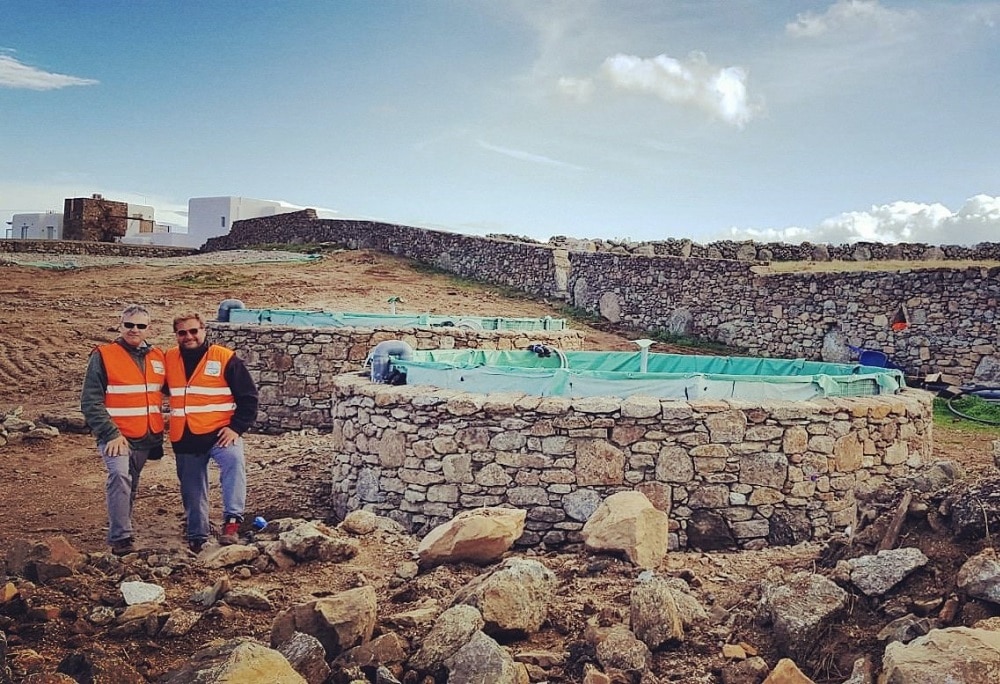
Building upon the preserved water and nutrient resources, Hydrousa is developing sustainable business models around agroforestry, tropical greenhouses and eco-tourism.
“We consider that the nutrients and energy inherently contained in wastewater can be recovered and used in agriculture and for domestic use,” explains Simos Malamis, Hydrousa’s programme coordinator.
On the island of Lesbos, they are developing a rich agroforestry ecosystem using circular practices. They treat the domestic sewage with anaerobic processes in constructed wetlands to produce biogas, sludge – which is then processed in a compost cultivator – and treated to become water free from pathogens. That can then be used to irrigate a 10.000 sq metre field of trees, bushes and herbs. “We have incorporated feedback from local communities, who tell us what to focus on, such as plants, etc,” says Simos.
On Mykonos island, they’ve installed an innovative sub-surface rainwater harvesting system to irrigate oregano and produce essential oils, creating business with little input. They also collect rainwater from house rooftops to provide water for domestic applications such as toilet flushing and to recharge groundwater sources for the irrigation of the lavender fields. This also reduces the excessive amount of pumping for groundwater.
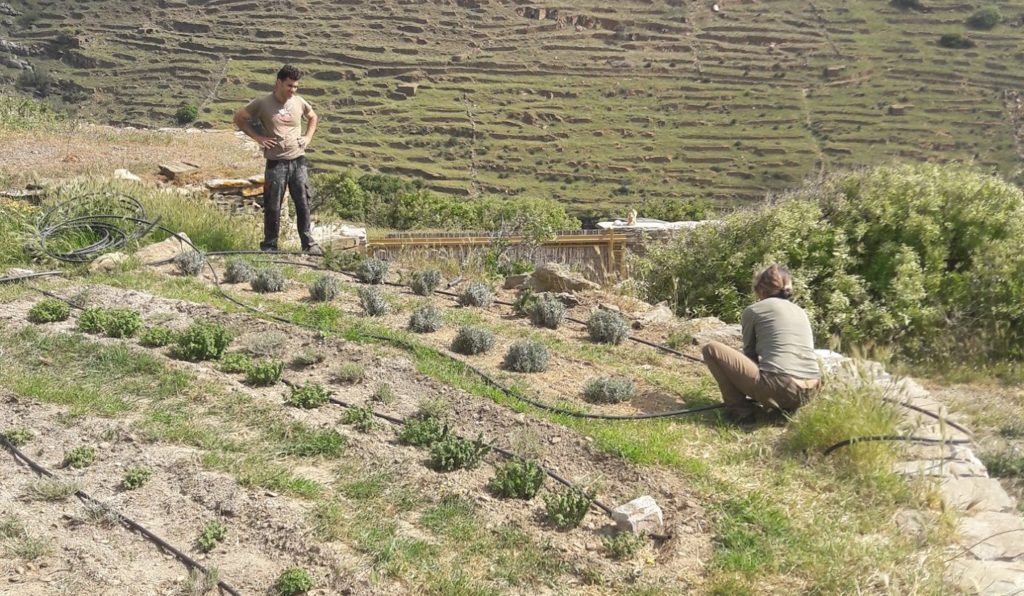
“Hydrousa also recycles the nutrients contained in sewage after suitable treatment in order to reduce the use of inorganic fertilisers,” adds Simos.
On Tinos island, the project applies a low-cost desalination system based on the principles of evaporation and condensation. Seawater and brine from the existing desalination plant is treated in a 200 sq metre Mangrove Greenhouse to produce clean water via evaporation and condensation, edible salt and tropical fruits. Watch how the natural world can teach us how to be greener:
On another side of the island, they manage an existing eco-tourism facility which combines various methods to achieve self-sufficiency in terms of water, energy and food production, while creating environmental and societal benefits.
All of these systems are circular, creating holistic regenerative solutions that can be customised and integrated to local needs. “All this is ideal for farmers, for hoteliers and so on, as the regenerative business models employed are of particularly low cost.”
“Nothing should go to waste” is the motto of Hydrousa, which aspires to expand way beyond Greece. In order to preserve natural water loops and halt land degradation in the Mediterranean region and beyond, their main goal is for a global replication of these innovative solutions, as well as inter-regional collaboration.
Watch this space in 2021 as a transferability of Hydrousa solutions will be demonstrated in other Mediterranean semi-arid regions and water stressed places in 25 coastal areas and islands in Italy, Spain, Cyprus, France, Egypt, Croatia, Israel, Turkey, Palestine, Lebanon, Morocco and Tunisia and at least six water-stressed rural or peri-urban areas from other countries.
AtlasAction: Learn much more about the collaboration of water allies here.
Bio
Journalist and blogger, Oscar has worked as an editor for several travel, nature and science magazines for the last 20 years.
Project leader
Simos Malamis, Programme Coordinator
Partners
This project has been selected as part of MedFutures, a new content channel that maps the most innovative and inspiring solutions to the water and climate crisis in the Mediterranean and the people behind them. Atlas of the Future is excited to join forces with Aigües de Barcelona.
Support the Atlas
We want the Atlas of the Future media platform and our event to be available to everybody, everywhere for free – always. Fancy helping us spread stories of hope and optimism to create a better tomorrow? For those able, we'd be grateful for any donation.
- Please support the Atlas here
- Thank you!
